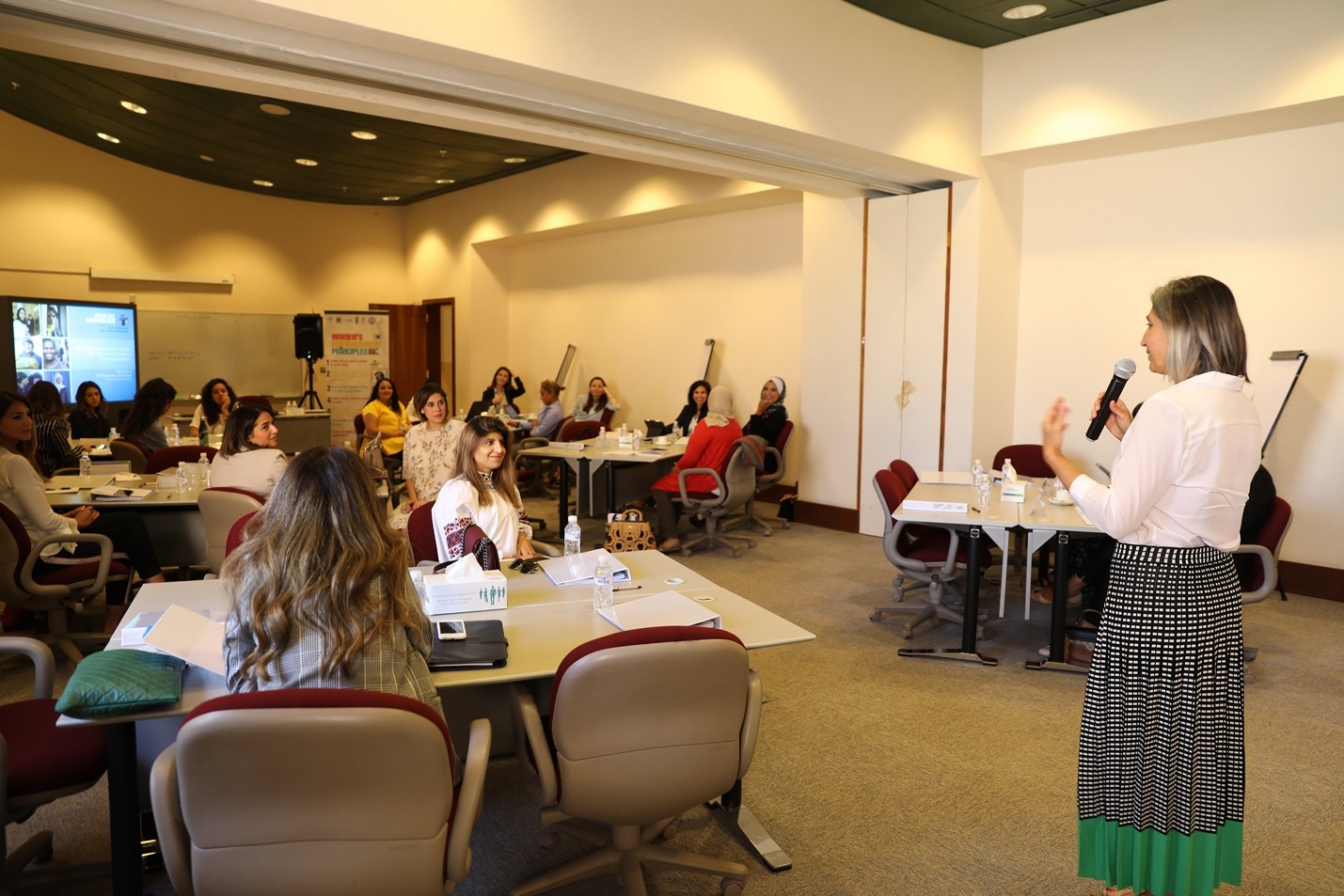Kuwaiti companies get ready to empower women
Date:

Twenty-five representatives of ten leading private sector entities attended the first training of its kind conducted in Kuwait to introduce local companies to the Women’s Empowerment Principles (WEPs).
The training was organized by the Women’s Research and Studies Centre (WRSC) of Kuwait University, in partnership with the General Secretariat of the Supreme Council for Planning and Development, UN Women Regional Office for the Arab States (ROAS) and UNDP Kuwait, as part of a comprehensive programme to support the State of Kuwait in the implementation of Sustainable Development Goal 5.
In welcoming the participants to the training, Dr. Lubna Al-Kazi, WRSC Director, noted that “the commitment of companies to the WEPs will not only lead to an inclusive and equitable private sector, it will also support Kuwait’s National Development Plan and the State Vision: Kuwait 2035”.
Representatives of UN Women ROAS emphasized the important role the private sector has to play to advance the gender equality agenda in the region to the benefit of business, community and the country as a whole.
The WEPs, launched in 2010 by UN Women and the UN Global Compact, offer a platform to mobilize business action to advance gender equality and women’s empowerment at the workplace, marketplace and communities.
The WEPs provide a set of seven Principles through which businesses can analyze their current initiatives, identify gaps and areas for improvement, set benchmarks and reporting practices, and tailor or establish gender-responsive policies and practices to realize gender equality and women’s empowerment:
- Principle 1: Establish high-level corporate leadership for gender equality
- Principle 2: Treat all workers fairly at work – respect and support human rights, equal opportunity, diversity and inclusion and nondiscrimination
- Principle 3: Ensure the health, safety and well-being of all workers
- Principle 4: Promote education, training and professional development for women
- Principle 5: Implement enterprise development, supply chain and marketing practices that empower women
- Principle 6: Promote equality through community initiatives and advocacy
- Principle 7: Measure and publicly report on progress to achieve gender equality
The training participants, drawn from Kuwaiti companies that have expressed interest in applying the WEPs, were introduced to the principles and their application, and were supported to initiate an action plan for implementation. Ms. Meral Guzel, the UN Women Specialist who delivered the training, introduced the participants to the principles and highlighted the importance of Principle 7, noting that measuring and reporting on progress is crucial to promote and share good practices on approaches towards achieving gender equality and women’s empowerment. The WEPs offer a practical roadmap for the private sector to promote sustainable and equitable development, both within their own companies, and creating a positive impact on society in the longer term. The WEP principles are in line with the 2030 Agenda for Sustainable Development which calls on the private sector to participate in multi-stakeholder efforts to promote national, regional and global development.